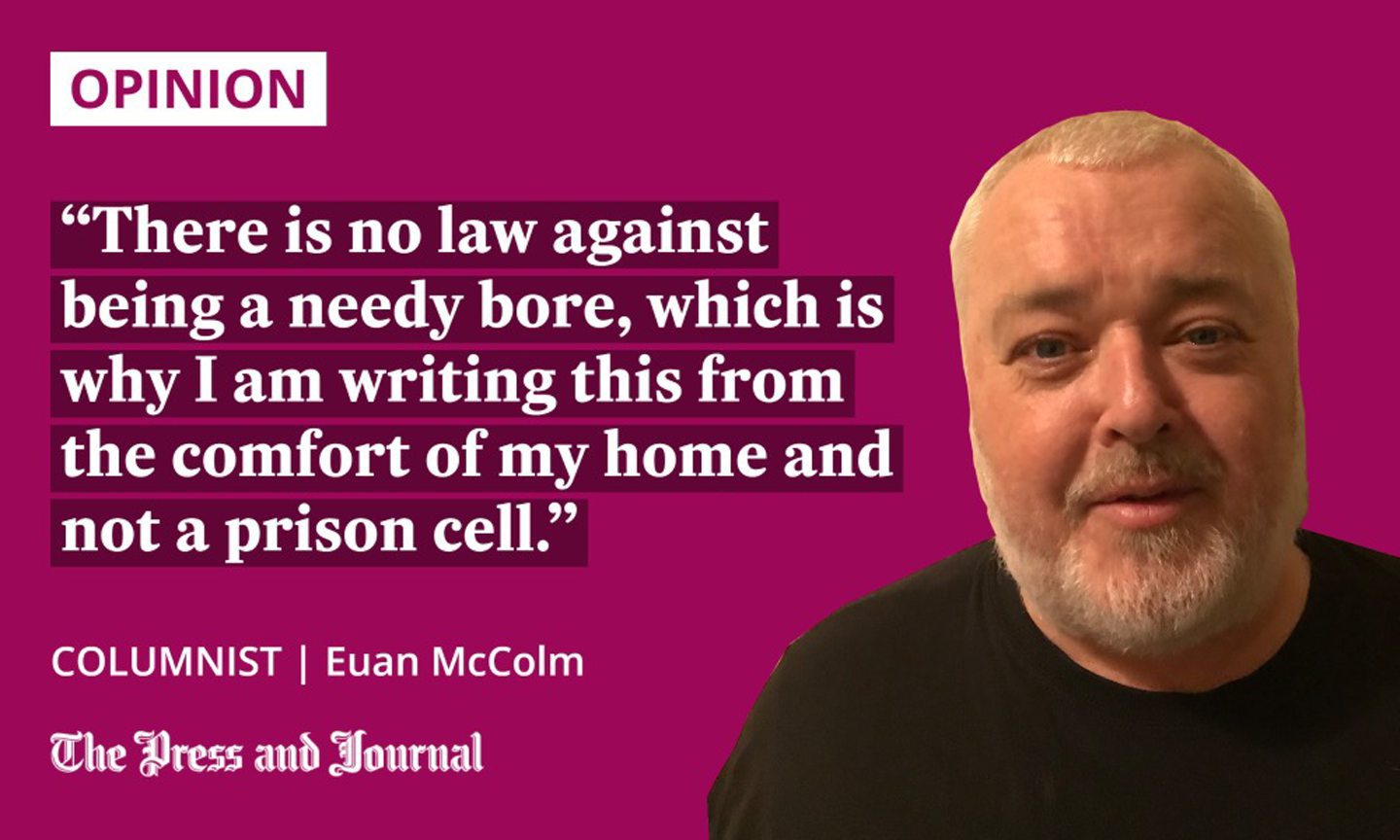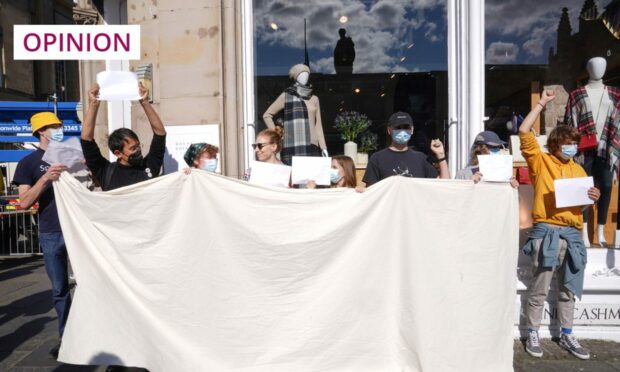No matter what sad-eyed newsreaders and politicians may insist, the entire nation is not now in mourning.
Of course, a great many people are devastated, still, by the death of the Queen last week. That tens of thousands queued in Edinburgh and then London to pay their respects to the late monarch is ample evidence of that.
But, it is also true that many are unmoved by the passing of Elizabeth II. For some, she was just another old lady who had a good innings. For others, she was the head of an institution that they consider to be desperately unfair.

And, so, it was hardly surprising that, among the scores of people who gathered to express their sorrow, there were those who felt differently.
The right to protest, to express a dissenting view, is fundamental to a healthy democracy. Sometimes, we may be hugely irritated or even offended by those exercising that right but, well, that’s just tough.
It’s been hugely troubling to see police officers arresting those who have chosen to use this moment in our history to protest the existence of monarchy.
Isn’t it a British ‘value’ to freely express an opinion?
I must admit to finding some of the demonstrations of the last week exhaustingly performative. A man holding up a placard proclaiming dissent from the position of those who surround him is not going to win hearts and minds. He is going to get a bit of attention for himself.
But, there is no law against being a needy bore, which is why I am writing this from the comfort of my home and not a prison cell.
I have some sympathy for police officers involved in removing protestors from crowds. Their role is not, after all, simply to solve crime. They are also there to protect people and, if it appears that the presence of a protestor among a group of mourners may be about to create a violent confrontation, then moving that protestor for his own safety may be the right call.
But, when those protesting the monarchy, even now, are charged with criminal offences, something has gone badly wrong.
Those waving signs declaring Charles is ‘Not My King’ are articulating a common sentiment
Many of those who have paid tribute to the late Queen over the past week have spoken of their belief that she embodied certain British “values”. Surely, one of those “values” is the freedom to express our opinions?
Polls show us that fewer than half of Scots (45%) support the monarchy. The presence of a sizeable chunk of “don’t knows” (15%) means opposition to the existence of a royal family (40%) is an even smaller minority view.
So, those waving signs declaring Charles is “Not My King” are articulating a common sentiment. But, even if this were not so, their right to dissent should be precious to us all.
Euan McColm is a regular columnist for various Scottish newspapers


Conversation